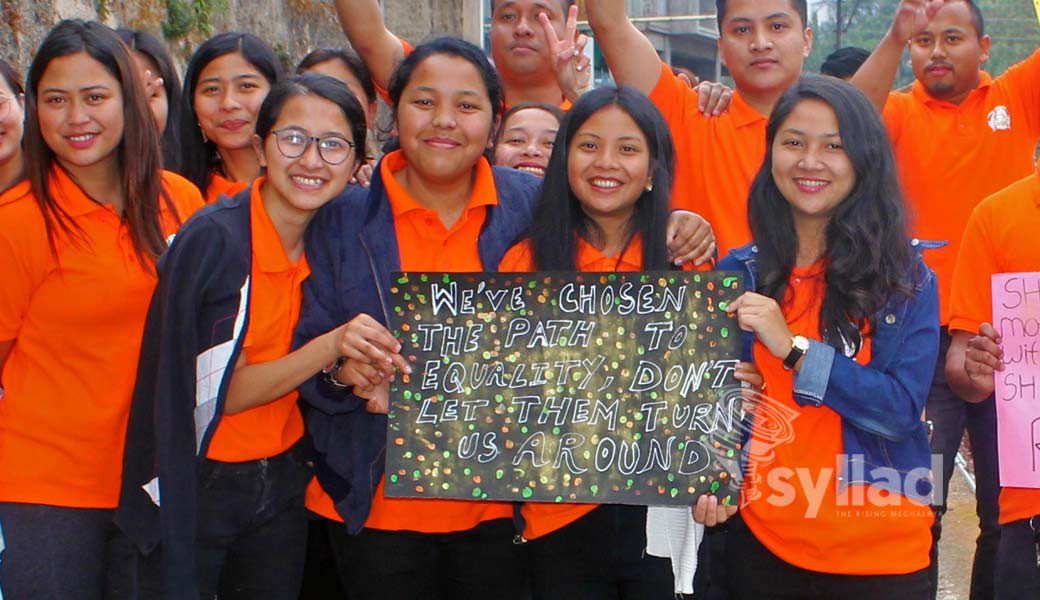Women March for Change: Martin Luther Christian University joins the rest of the nation

JOWAI: The Department of Social Work of Martin Luther Christian University joins the rest of the nation in celebrating the Women March for Change that is organised throughout India on April 4, by organising a special programme in collaboration with the North East Network (NEN), Meghalaya, in the University’s premises.
The programme was kick started with an exuberant flash mob by the students through which all the students and faculty of the University were invited to attend the programme.
The programme was introduced to the attendees by the anthem of the campaign which emphasised on the fact that raising of one’s voice is essential to stop atrocities against women.
Deigo R. Sangma, an Assistant Professor of the Department, spoke on the context on which the event was held stating that with the onset of the Lok Sabha polls, it is important for people to choose wisely and to choose a government that will champion the causes of women especially the marginalised ones whose voices are discriminated and stifled.
Balarisha Lyngdoh, the Senior Programme Associate, NEN, spoke on women of our region becoming victims of gender inequality in that a very small percentage of women own property or have proper jobs. She further stated that women are also not well represented in the judiciary, the police or the Parliament.

Samanda Phanwar, the Project Coordinator of Lamjingshai, an NGO of the region, spoke about the NGO’s work with sex workers and transgenders and the efforts and initiatives it takes to remove the stigma attached to them and give them their rightful place in society.
Balari Warjri an MSW graduate of MLCU, gave a presentation on the findings of her research work on sex workers. In her research, it was found out that sex workers live under dire conditions earning very meagre incomes. However, their worst problem is the discrimination that they face right from their own families to the societies they live in. They also have no access to social facilities like ration cards and are looked down upon even in social institutions like the church and schools. Hence, there is an urgent need to provide them with alternate means of livelihood.
Another MSW graduate of the University, Medaaihunshisha Talang presented the findings of her research on antenatal care of pregnant women and found that many pregnant women, especially in the rural areas of the region, do not get proper antenatal care because of various factors, some of them being the negligence of the health workers and the prevalence of traditional quacks.

The programme ended with each attendee taking a pledge to make efforts to help end discrimination of women.

Leave a Reply